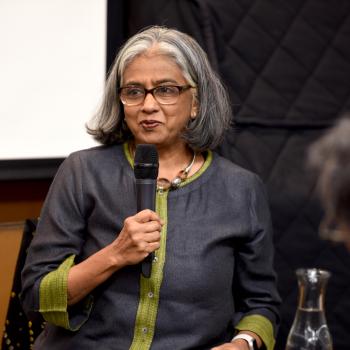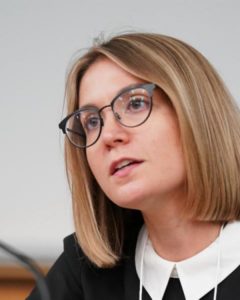Mobile culture
Scholars & Thought Leaders
Cara Wallis
Book: Technomobility in China: Young Migrant Women and Mobile Phones (Links to an external site.) (2013)
Cara Wallis provides an intimate portrait of the social, cultural, and economic implications of mobile communication for a group of young women engaged in unskilled service work in Beijing, where they live and work for indefinite periods of time.
Talk at USC:https://www.youtube.com/watch?v=v7Oa3XmqEMs

Kelly Gates
Professor Gates’ research focuses on the critical analysis of digital media technologies. Her main emphasis has been the politics and social implications of computerization, and particularly the automation of surveillance, in the United States from the mid-twentieth century to the present.
Her 2011 book, Our Biometric Future: Facial Recognition Technology and the Culture of Surveillance, explores the effort underway since the 1960s to teach computers to see the human face.
Book: Our Biometric Future

Radha S. Hedge
Professor in the Department of Media, Culture and Communication at New York University. Her research and teaching focus on migration, media flows, globalization and transnational feminism. She is the author of Mediating Migration, (Polity 2016) editor of Circuits of Visibility: Gender and Transnational Media Cultures (NYU Press, 2011) and co-editor of Routledge Handbook of the Indian Diaspora (2018). Her earlier work on gender identities and reproductive politics in south India include ethnographies conducted in south India on the subject of violence and motherhood.

Nora A Draper
Associate Professor of Communication at the University of New Hampshire. Nora’s research examines the political economic and sociocultural dimensions of media and technology industries and has been published in the International Journal of Communication, Critical Studies in Media Communication, the Journal of Broadcast & Electronic Media, Media Industries, Policy & Internet, Feminist Media Studies, and Surveillance & Society. Nora’s first book The Identity Trade: Selling Privacy and Reputation Online (NYU Press, 2019), examines how the companies across the consumer privacy industry have responded to and shaped public concerns regarding identity, reputation, and surveillance through the promotion of tools and services to enhance personal privacy online.
Book: The Identity Trade: Selling Privacy and Reputation Online

Film & Video
How North Korea Is Using Smartphones as Weapons of Mass Surveillance (2017)
As smartphones and mobile devices become more common in North Korea, technology isn’t just improving communication; it’s giving the government a powerful tool to spy on its people. The Wall Street Journal investigates Pyongyang’s sophisticated surveillance technologies.
Source: Wall Street Journal
Mobile phone usage explodes in Africa, spurring innovation (2014)
A drive through Kenya’s bustling capital of Nairobi reveals a nation in love — with the mobile phone. Across the African continent, improvements in mobile phone technology and greater access to the internet are spurring new innovations in the tech sector. Special correspondent Martin Seemungal reports from Kenya, the East African nation leading the trend.
Source: PBS NewsHour
Books & Articles
Seven ways mobile phones have changed lives in Africa (2012)
Mobile phone technology has grown significantly over the past decade. Nigeria has close to 100M mobile phone lines, making it Africa’s largest telecoms market.
Source: CNN | World
By Tolu Ogunlesi

Cell phone culture: How cultural differences affect mobile use (2012)

In Emerging Economies, Smartphone and Social Media Users Have Broader Social Networks (2019)
Are smartphones and social media changing social interactions in emerging economies, or are people simply talking to the same people online that they once talked to offline? A Pew Research Center survey of adults in 11 nations across four global regions finds that, in many key respects, smartphone users – and especially those who use social media – are more regularly exposed to people who have different backgrounds and more connected with friends they don’t see in person.
Source: Pew Research Center

Mobile Divides in Emerging Economies (2019)
As ownership of mobile phones, especially smartphones, spreads rapidly across the globe, there are still notable numbers of people in emerging economies who do not own a mobile phone, or who share one with others. A Pew Research Center survey in 11 emerging economies finds that a median of 6% of adults do not use phones at all, and a median of 7% do not own phones but instead borrow them from others. The mobile divides are most pronounced in Venezuela (32%), India (30%) and the Philippines (27%), countries where about three-in-ten adults do not own a mobile phone.
Source: Pew Research Center

Smartphones help blacks, Hispanics bridge some – but not all – digital gaps with whites (2019)
Black and Hispanic adults remain less likely than whites to say they own a traditional computer or have high speed internet at home, according to a Pew Research Center survey conducted in early 2019. But smartphones are playing a role in helping to bridge these differences.
Source: Pew Research Center

Racial and ethnic differences in how people use mobile technology (2015)
Although whites, blacks and Hispanics have similar rates of smartphone ownership, minorities tend to rely more heavily on their phone for internet access, according to Pew Research Center’s recent report on smartphone adoption . Some 13% of Hispanics and 12% of blacks are smartphone-dependent, meaning they don’t have a broadband connection at home and have few options for going online other than their cellphone. In comparison, only 4% of white smartphone owners rely heavily on their cellphone for online access.
Source: Pew Research Center
Bangladesh bans mobile phone access in Rohingya camps (2019)
The move threatens a communication blackout for Rohingya who use mobile phones to connect across camps and borders.
Source: Al Jazeera

Hong Kong tightens leash on mobile phone use, registration (2021)
The Hong Kong government has kicked off public consultation on the near-certain policy change, which would require residents of the city to register their mobile phone SIM cards using their real identity, raising more concerns over privacy and fears of wider state surveillance.
Source: Al Jazeera

Pyongyang calling: How N Korea is busting smartphone sanctions (2019)
Economists estimate as many as six million North Koreans – a quarter of the population – now have mobile phones, a critical tool for participating in an informal market economy that has become a key income source for many.
Source: Al Jazeera

HRW: China using mobile app for surveillance of Uighurs (2019)
Chinese police are using a mobile app to store data on 13 million ethnic minority Uighurs and other Turkic Muslims in Xinjiang province, a Human Rights Watch (HRW) report has revealed.The app, known as the Integrated Joint Operations Platform, is being used to store information from the height and weight of individuals to facial recognition scans.
Source: Al Jazeera

Access denied: Phone politics in Palestine (2013)
Ramallah, Occupied West Bank – Smartphones are ubiquitous in Ramallah. All over the city people tap away at their screens as familiar ringtones add to the din of the crowds on the streets. But Palestinians are spending hundreds of dollars on the latest smartphones that cannot do what they’re built for: The West Bank’s two service providers, Jawwal and Kuwait-based Wataniya, cannot provide fast 3G mobile data services because of Israel’s refusal to grant the Palestinian Authority sufficient bandwidth.
Source: Al Jazeera

Kenyans Prioritizing Mobile Phone Over Food, Transport (2013)
A recent study commissioned by the World Bank suggests that increasing numbers of Kenyans in the poorest socioeconomic group are foregoing food and transport or opting for cheaper alternatives, to buy credit to use mobile phones. Mobile phones were once considered luxury goods in Kenya. But with decreasing prices, people of all socioeconomic levels have come to rely upon them for both personal and professional needs.
Source: VOA

Report: Mobile Phones Transform Lives in Africa (2013)
Rene Mendy, a street vendor in Dakar, has never had enough money to open a bank account. But now, thanks to an emerging mobile phone banking service, he has access to many financial services. Using a service called Orange Money, for example, he can deposit or withdraw as little as 500CFA (about $1), pay bills from anywhere, recharge phone credit and transfer money to family members.
Source: VOA
